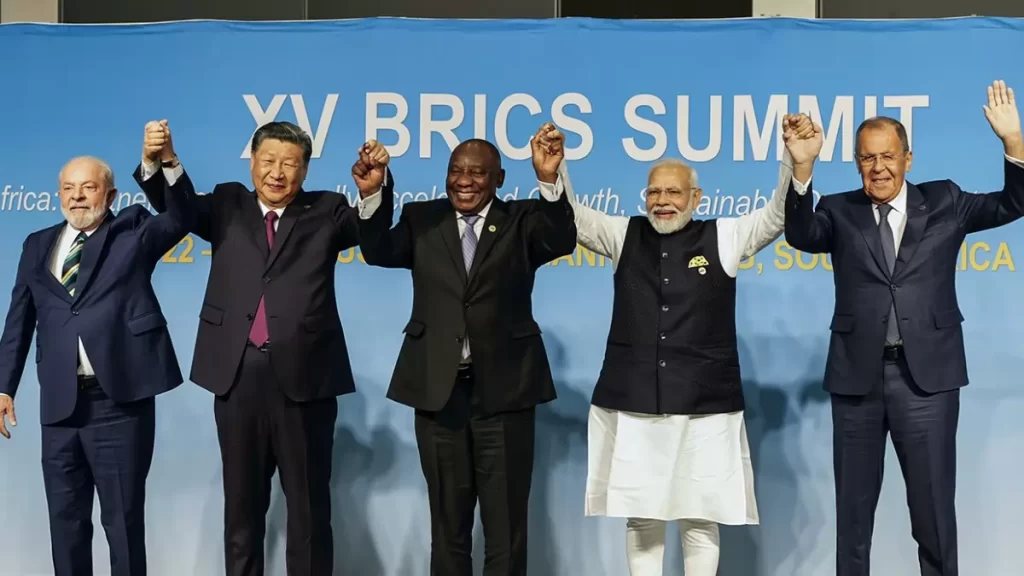Johannesburg, 24 August – The three-day BRICS Summit reached a monumental conclusion with the announcement that six countries, including the previously ostracised Iran and sleeping African giant Ethiopia, will be welcomed as new members of the emerging-market bloc. This historic move is set to bolster the group’s diversity and significantly amplify its influence in shaping global affairs. Ramaphosa, who chaired the summit, said while addressing the media on the outcomes of the three-day summit at the Sandton Convention Centre that the new memberships will take effect on January 1 2024.
A Transformational Milestone
As the curtains drew to a close on the BRICS Summit in Johannesburg, the collective leaders of Brazil, Russia, India, China, and South Africa, came together to unveil a historic expansion of their alliance. Joining the established members are Iran and Ethiopia, along with Egypt, Argentina, Saudi Arabia and the United Arab Emirates. This move signals a bold step towards a more inclusive and representative international platform.
Iran’s Reintegration and Ethiopia’s Rise
The inclusion of Iran stands out as a watershed moment, marking its reintegration into the global diplomatic fold. Having faced isolation on various fronts, Iran’s acceptance into BRICS marks its strategic importance and offers the nation an opportunity to engage constructively on the international stage.
Ethiopia’s inclusion is equally noteworthy. The African nation’s rapid economic growth and increasing regional influence have positioned it as a continental powerhouse. Its addition to BRICS opens the door to greater collaboration between the bloc and the African continent, a relationship that has the potential to drive collective prosperity and development.
A Dynamic Shift in Global Dynamics
The decision to expand the BRICS alliance reflects a dynamic shift in the geopolitical landscape. With the addition of diverse economies, political systems, and cultures, the bloc’s influence is poised to extend even further. As a collective force, the expanded BRICS will possess an enhanced capacity to address critical global challenges, including economic inequalities, climate change, and the evolving nature of international trade.
A Vision for Mutual Prosperity
In a joint statement, the leaders of BRICS outlined their vision for the future. “The expansion of our alliance is not merely an exercise in numbers but a testament to our commitment to promoting mutual prosperity and peace in a rapidly changing world. We believe that our collective strength will enable us to create a more equitable and balanced global order,” the statement read.
The decision also emphasises the importance of dialogue and collaboration among nations with diverse interests, acknowledging that effective solutions to global challenges require collective action and cooperation.
Pathways Ahead
With the announcement of these new members, the BRICS alliance is embarking on a new chapter marked by broader horizons and deeper engagements. The forthcoming months will witness discussions and negotiations regarding the roles, responsibilities, and benefits of each new member within the expanded bloc.
As the global community watches this transformation unfold, the potential for BRICS to shape the global agenda and contribute to a multipolar world order becomes increasingly apparent. The expansion serves as a reminder that the dynamics of international relations are constantly evolving, and collaboration among nations remains the key to addressing the complex challenges of our time.
